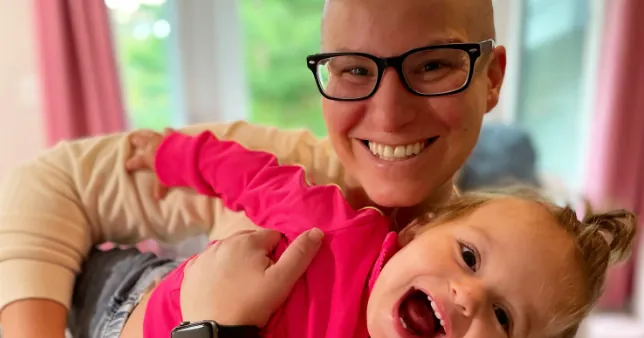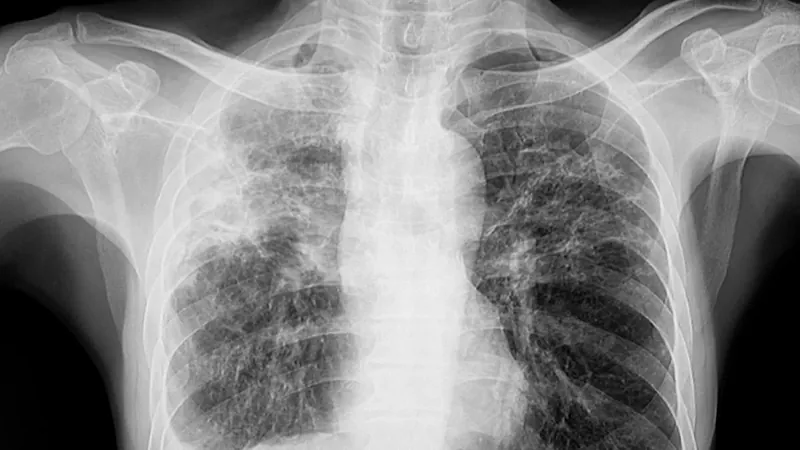
Defying Odds: How a Brave Young Mom is Thriving After Her Aggressive Cancer Diagnosis
2025-09-13
Author: Wei
At just 34 years old, Elissa Kalver's life was turned upside down when she discovered a lump in her breast just months after welcoming her first child. Despite having no family history of cancer, she initially brushed it off as a harmless cyst. However, a visit to the doctor revealed a much graver reality: a second lump in her armpit was also malignant.
As if the news wasn't devastating enough, further testing showed that the cancer had spread to her lower spine and liver, leading to a diagnosis of HER2-positive metastatic breast cancer — a condition deemed incurable by experts at the Cleveland Clinic.
"I was told I wouldn’t die tomorrow, but the odds weren't great, with an 80% chance of dying within five years," Kalver recalled. "As a 34-year-old, being told to hope to live until 40 was a harsh reality check."
Understanding HER2-Positive Metastatic Breast Cancer
HER2-positive metastatic breast cancer is a particularly aggressive form characterized by high levels of HER2, a protein that influences cell growth. The prognosis is dire for those diagnosed at advanced stages; while early detection can lead to a 97% five-year survival rate, for patients like Kalver, that number plummets to 39%.
Dr. Shari Goldfarb from Memorial Sloan Kettering Cancer Center notes significant advances in treatment over the past decade, allowing many women to live longer, more fulfilling lives despite their diagnosis.
Martialing Courage In Treatment
With regular scans every few months to monitor her condition, Kalver's battle has been about more than just survival. Her initial aggressive chemotherapy was just the start of a tumultuous journey through various clinical trials and treatments.
Just a year after her diagnosis, Kalver faced an even greater hurdle when doctors discovered the cancer had spread to her brain. Despite her fears, targeted chemotherapy that crossed the blood-brain barrier significantly reduced the tumors.
"I used to think brain tumors were a death sentence," she confessed. However, with tumors reduced by around 80% and no sign of growth for the past three years, hope remains alive.
Kalver's journey has been fraught with challenges. Treatments brought debilitating side effects like nausea and hair loss, which were especially hard as a new mother. But with her oncologist's guidance, Kalver fought through the pain, continuously adjusting her treatment for the best quality of life.


 Brasil (PT)
Brasil (PT)
 Canada (EN)
Canada (EN)
 Chile (ES)
Chile (ES)
 Česko (CS)
Česko (CS)
 대한민국 (KO)
대한민국 (KO)
 España (ES)
España (ES)
 France (FR)
France (FR)
 Hong Kong (EN)
Hong Kong (EN)
 Italia (IT)
Italia (IT)
 日本 (JA)
日本 (JA)
 Magyarország (HU)
Magyarország (HU)
 Norge (NO)
Norge (NO)
 Polska (PL)
Polska (PL)
 Schweiz (DE)
Schweiz (DE)
 Singapore (EN)
Singapore (EN)
 Sverige (SV)
Sverige (SV)
 Suomi (FI)
Suomi (FI)
 Türkiye (TR)
Türkiye (TR)
 الإمارات العربية المتحدة (AR)
الإمارات العربية المتحدة (AR)